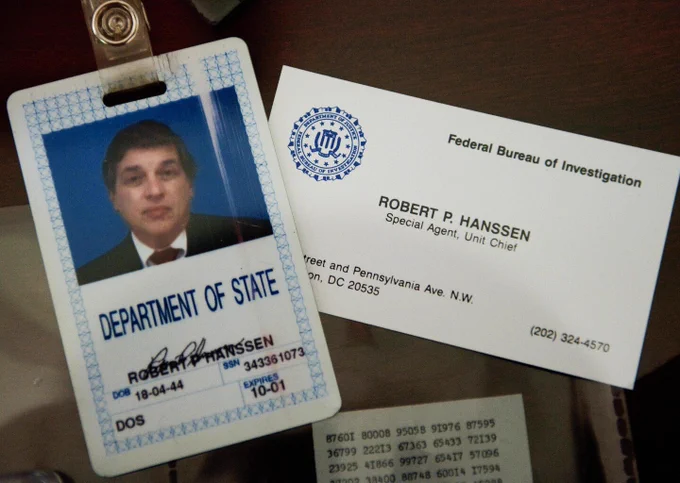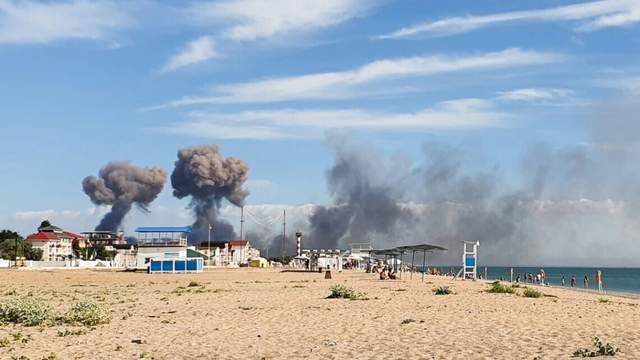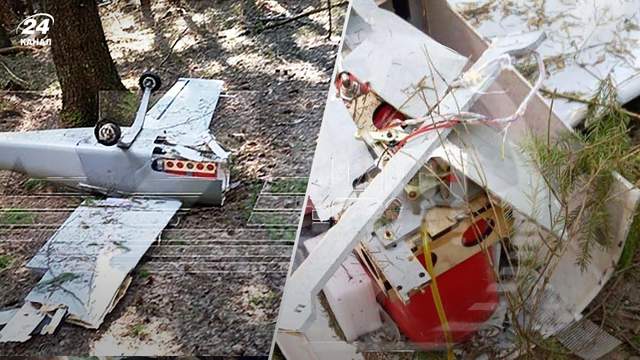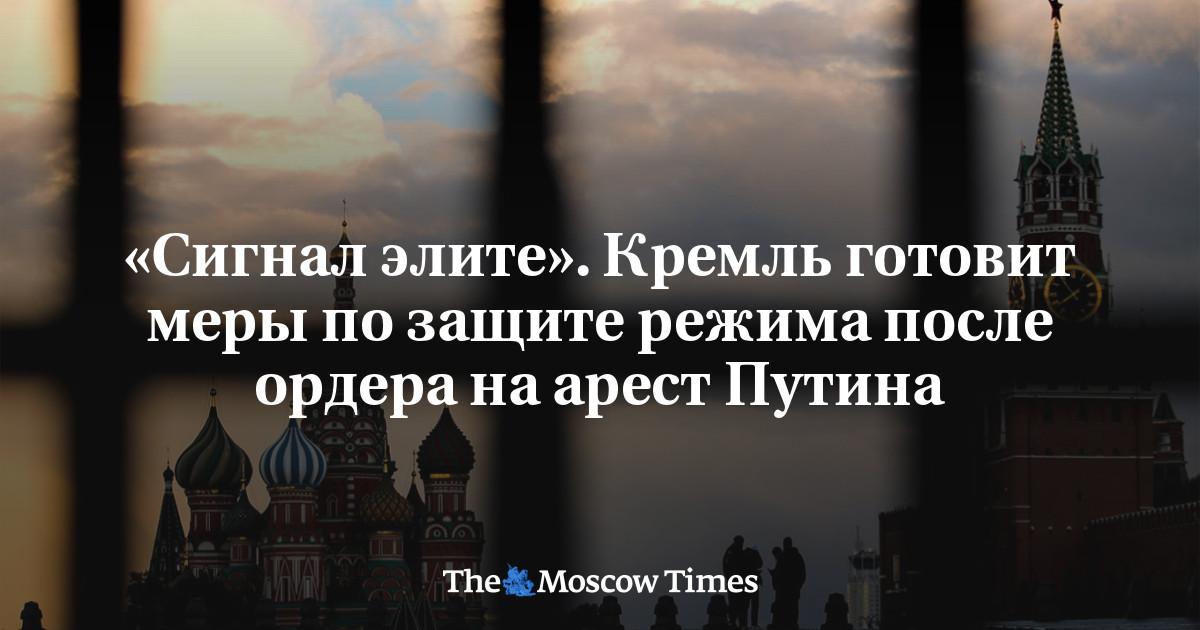Opinion What a 2001 investigation into an FBI spy can tell us about the Discord leaker - putinandputinism.com

| |||||||||||||||||||||||||||||||||||||||||||||||||||||||||||||||||||||||||||||||||||||||||||||||||||||||||||||||||||||||||||||||||||||||||||||||||||||||||||||||||||||||||||||||||||||||||||||||||||||||||||||||||||||||||||||||||||||||||||||||||||||||||||||||||||||||||||||||||||||||||||||||||||||||||||||||||||||||||||||||||||||||||||||||||||||||||||||||||||||||||||||||||||||||||||||||||||||||||||||||||||||||||||||||||||||||||||||||||||||||||||||||||||||||||||||||||||||||||||||||||||||||||||||||||||||||||||||||||||||||||||||||||||||||||||||||||||||||||||||||||||||||||||||||||||||||||||||||||||||||||||||||||||||||||||||||||||||||||||||||||||||||||||||||||||||||||||||||||||||||||||||||||||||||||||||||||||||||||||||||||||||||||||||||||||||||||||||||||||||||||||||||||||||||||||||||||||||||||||||||||||||||||||||||||||||||||||||||||||||||||||||||||||||||||||||||||||||||||||||||||||||||||||||||||||||||||||||||||||||||||||||||||||||||||||||||||||||||||||||||||||||||||||||||||||||||||||||||||||||||
Russia-Ukraine war live: Russia switching to defensive positions in all areas of combat except Bakhmut, claims Ukraine intelligence theguardian.com/world/live/2…
Opinion What a 2001 investigation into an FBI spy can tell us about the Discord leaker putinandputinism.com/jack-te…

 Неспокойная ночь в Крыму. 24 апреля временно оккупированный Севастополь якобы "атаковали надводные БПЛА". Об этом сообщал так называемый мэр города Михаил Развожаев. Таким образом могла происходить разведка украинских сил обороны для очень важных действий. Полный текст новости
Неспокойная ночь в Крыму. 24 апреля временно оккупированный Севастополь якобы "атаковали надводные БПЛА". Об этом сообщал так называемый мэр города Михаил Развожаев. Таким образом могла происходить разведка украинских сил обороны для очень важных действий. Полный текст новости Новая рабочая неделя для граждан страны-террористки началась с тревожной новости (к слову, россиянам "светят" только такие). Под Москвой 24 апреля упал БПЛА с 17 килограммами взрывчатки. Журналист Юрий Романенко заявил, что дрон летел не просто так. Полный текст новости
Новая рабочая неделя для граждан страны-террористки началась с тревожной новости (к слову, россиянам "светят" только такие). Под Москвой 24 апреля упал БПЛА с 17 килограммами взрывчатки. Журналист Юрий Романенко заявил, что дрон летел не просто так. Полный текст новости“The Ukrainian government has proved more resilient than many expected. But it has been the non-governmental organizations in Ukraine that have shouldered the bulk of work helping Ukrainians survive Russia’s war,” writes Olga Moloko. kyivindependent.com/civil-so…
⚡️Media: Wagner commander who confessed to war crimes detained in Russia. Former Wagner commander Azamat Uldarov, who publicly confessed to committing war crimes in Ukraine, was detained and threatened in Saratov Oblast, Russian independent media Meduza reported on April 24.… twitter.com/i/web/status/165…
Moscow's highest court has rejected an appeal against the arrest of a woman charged with a bomb attack that killed an influential Russian military blogger.
26-year-old Darya Trepova is accused of using an explosive concealed in a statuette to kill Vladlen Tatarksy in a cafe in St Petersburg.
Tatarsky was an ardent supporter of the war in Ukraine, who filed reports on the fighting from the front lines.
Journalist Yulia Shapovalova joins us from Moscow for the latest updates.
Subscribe to our channel: http://bit.ly/AJSubscribe
Follow us on Twitter https://twitter.com/AJEnglish
Find us on Facebook https://www.facebook.com/aljazeera
Check our website: http://www.aljazeera.com/
Check out our Instagram page: https://www.instagram.com/aljazeeraenglish/
#Russia #DaryaTrepova #VladlenTatarsky #RussiaCafeAttack #StPetersburg #UkraineWar


Ордер на арест президента Владимира Путина, выданный Международным уголовным судом в Гааге, вызвал у обеспокоенность российских элит и заставил чиновников в Кремле задуматься о рисках внутриполитической стабильности.
В конце марта в Кремле состоялось совещание, посвященное тому, как реагировать на ордер МУС и какие действия предпринять для укрепления режима внутри страны, сообщили The Moscow Times сотрудник Кремля и источник в руководстве российского парламента.
Помимо гражданских чиновников администрации президента, в совещании участвовали сотрудники управления по защите конституционного строя Федеральной службы безопасности (ФСБ), которая создана для охраны режима от внутриполитических угроз.
«Это [решение суда] же, по сути дела, призывы к свержению власти в России. Но при этом с формальной точки зрения это исполнение вроде бы как легального решения легального международного органа», — возмутился с разговоре с The Moscow Times депутат Госдумы от «Единой России».
Сразу после решения МУС в Кремль поступил целый ряд предложений о возможных вариантах ответа. Госдума оперативно приняла закон, который вводит штрафы и тюремные сроки за призывы арестовать Путина. Спикер нижней палаты Вячеслав Володин предложил цензурировать упоминание решения МУС.
Существуют и другие предложения, но они пока не были обнародованы, сказал близкий к Кремлю собеседник The Moscow Times.
«Часть мер направлена на то, чтобы обеспечить нелегитимность решений МУС внутри страны. Кто знает, что МУС в будущем еще придумает. А так, все его решения в России будут признаны вне закона и обсуждать их будет запрещено под страхом тюрьмы» — пояснил он.
«Приди и арестуй»
Российская госпропаганда растерянно отреагировала на гаагский ордер для Путина: ТВ-каналы не стали сообщать о том, что президент РФ может быть арестован более чем в 100 странах мира, а чиновники поспешили называть решение суда «юридически ничтожным».
Глава Следственного комитета Александр Бастрыкин, однокурсник Путина по юрфаку ЛГУ, поручил выяснить имена судей МУС, принимавших решение, а замглвы Совбеза Дмитрий Медведев пригрозил ударить по Гааге гиперзвуковыми ракетами. Он также заявил, что любая попытка арестовать российского президента будет рассматриваться как объявление войны и может повлечь ядерный удар.
Хотя задержание Путина — это «фантастический сценарий», и реальных возможностей для этого не просматривается, у ордера МУС есть политические последствия, считает глава Центра политической конъюнктуры, бывший сотрудник Кремля Алексей Чеснаков.
В частности, ограничиваются возможности ряда западных политиков для прямого диалога с Путиным; появляется линия напряжения внутри российской элиты, которая менее защищена от возможных преследований на Западе, в отличие от президента, перечисляет Чеснаков. Наконец, создается негативный фон для стран и компаний, которые были готовы продолжать вести бизнес с Россией.
Ордер на арест Путина обсуждался в том числе и в руководстве крупных российских компаний, сказал The Moscow Times топ-менеджер крупного предприятия с госучастием. Реакция, по его словам, была неоднозначной. «Кто говорит, что это туфта, кто-то — что это сигнал и скорее даже не Путину, а людям и элите», — сказал топ-менеджер.
Бывший чиновник, последние годы занимающийся бизнесом, тесно связанным государством, утверждает, что страха в деловой среде ордер МУС не вызвал. «А вот раздражение, что не далеко ли зашли [на Западе] и что теперь мы опять несимметрично ответим, — да», — рассказывает он.
«Что это решение МУС даст, неясно, потому что Путин все равно никуда не ездит», — добавляет источник.
Высокопоставленный чиновник правительства России назвал ордер МУС «глупостью». По его мнению, поддержка решения Европой стала возможной, потому что «европейские элиты не обладают самостоятельностью»
Другой высокопоставленный чиновник, работающий в одном из субъектов РФ, сказал The Moscow Times, что региональная элита воспринимает решение как «очередную хохму» и «неадекватное поведение» Запада.
«Никто уже не сомневается в лютой ненависти Запада к любому русскому… А значит, все в одной лодке и ничего хорошего не ждут. Ни сейчас, ни в будущем. Логика проста — приди и арестуй. П****ть не мешки ворочать» — сказал чиновник, который ранее не был сторонником противостояния с Западом.
WASHINGTON (AP) — A historic trial over the deadly U.S. Capitol insurrection is drawing to a close, with prosecutors and defense lawyers set to make their final appeals to jurors before they decide the fate of Proud Boys extremist group leaders charged with plotting to use force to keep then-President Donald Trump in power.
A federal jury in Washington, D.C., is scheduled to begin hearing closing arguments on Monday after more than three months of testimony in the seditious conspiracy case against former Proud Boys national chairman Enrique Tarrio and four lieutenants.
Tarrio is one of the top targets of the Justice Department’s investigation of the riot that erupted at the Capitol on Jan. 6, 2021, as Congress prepared to certify Joe Biden’s presidential election victory over Trump. Tarrio wasn’t in Washington, D.C., that day but is accused of orchestrating an attack from afar.
The Justice Department has already secured seditious conspiracy convictions against the founder and members of another far-right extremist group, the Oath Keepers. But this is the first major trial involving leaders of the far-right Proud Boys, a neofacist group of self-described “Western chauvinists” that remains a force in mainstream Republican circles.
Seditious conspiracy, a Civil War-era charge that is rare and can be difficult to prove, carries a potential sentence of up to 20 years in prison. The Proud Boys also face other serious charges.
Jurors have heard 50 days of testimony by more than three dozen witnesses since the trial started in January. Two of the five defendants testified, but Tarrio wasn’t one of them.
The foundation of the government’s case is a trove of messages that Proud Boys leaders and members privately exchanged in encrypted chats — and publicly posted on social media — before, during and after the Jan. 6 attack.
The messages show Proud Boys celebrating when Trump, a Republican, told the group to “stand back and stand by” during his first debate with Biden, a Democrat. After the 2020 election, they discussed plans to travel to Washington for Trump’s “Stop the Steal” rally on Jan. 6. And they raged online for weeks about baseless claims of a stolen election and what would happen when Biden took office.
“If Biden steals this election, (the Proud Boys) will be political prisoners,” Tarrio posted on Nov. 16, 2020. “We won’t go quietly ... I promise.”
Jurors also saw the string of gleeful messages that Proud Boys members posted during the Jan. 6 riot. A group of Proud Boys marched to the Capitol that day. Some entered the building after the mob of Trump supporters overwhelmed police lines.
“Make no mistake,” Tarrio wrote in one message. “We did this.”
Tarrio, a Miami resident, is on trial with Ethan Nordean, Joseph Biggs, Zachary Rehl and Dominic Pezzola. Nordean, of Auburn, Washington, was a Proud Boys chapter president. Biggs, of Ormond Beach, Florida, was a self-described Proud Boys organizer. Rehl was president of a Proud Boys chapter in Philadelphia. Pezzola was a Proud Boys member from Rochester, New York.
Tarrio was arrested in Washington two days before the Jan. 6 riot on charges that he burned a church’s Black Lives Matter banner during an earlier march in the city. Tarrio heeded a judge’s order to leave the nation’s capital after his arrest.
Defense attorneys have vigorously argued that there was no conspiracy and that the Proud Boys had no plan to attack the Capitol. And two key prosecution witnesses — onetime Proud Boys cooperating with the government — both acknowledged that they didn’t know of any such plan.
The defense attorneys called several current and former Proud Boys to the stand, trying to portray the group as a drinking club that only engaged in violence for self-defense against antifascist activists.
Rehl, the first defendant to testify, said the group had “no objective” that day. Pezzola testified that he got “caught up in the craziness” and acted alone on Jan. 6 when he used a riot shield stolen from a police officer to smash a Capitol window. Pezzola also referred to the proceedings as a “corrupt trial” with “fake charges.”
Prosecutors have argued that Tarrio and the others mobilized a loyal group of foot soldiers — or “tools” — to supply the force necessary to carry out their plot.
Key witnesses for prosecutors included two former Proud Boys members who pleaded guilty to riot-related charges and are cooperating with the government in the hopes of getting lighter sentences.
The first, Matthew Greene, testified in January that group members were expecting a “civil war” as they grew increasingly angry about the election results. The second, Jeremy Bertino, testified in February that he viewed the Proud Boys as leaders of the conservative movement and as “the tip of the spear” after the November 2020 election.
Approximately 20 Proud Boys leaders, members and associates have pleaded guilty to charges related to the Jan. 6 riot. Bertino is the only one to plead guilty to a seditious conspiracy charge.
The Proud Boys’ defense mirrored arguments made by lawyers for members of the Oath Keepers, who were separately charged with seditious conspiracy. They, too, said there was no evidence of a plan for group members to attack the Capitol.
Several Oath Keepers — including the antigovernment group’s founder, Stewart Rhodes — also took the witness stand in their trials, with mixed results. Over the course of two Oath Keepers trials, prosecutors secured seditious conspiracy convictions against Rhodes and five other members, while three defendants were acquitted of the charge. Those three, however, were convicted of obstructing Congress’ certification of Biden’s electoral victory.
Sentencings for Rhodes and other Oath Keepers are scheduled for next month. Prosecutors have yet to disclose how much prison time they will be seeking.
___
Associated Press writer Alanna Durkin Richer in Boston contributed to this report.
___
Follow the AP’s coverage of the U.S. Capitol insurrection at https://apnews.com/hub/capitol-siege.
 image/png 700.png
image/png 700.png
Glenn Fine, a fellow at the Brookings Institution, is a former inspector general of the Justice Department and acting inspector general of the Defense Department.
The devastating leak of classified documents, allegedly by Jack Teixeira, a member of the Air National Guard, raises a host of troubling questions: How did a 21-year-old come to have seemingly unfettered access to so much top-secret information? Did he undergo a thorough background check? Did he have a need to know all that information? Was anyone monitoring whether he was inappropriately accessing, downloading or printing documents? How was he able to take so many documents from a classified facility without raising suspicion?
Teixeira’s case amply demonstrates the need for a probing review and reform of the federal government’s internal security practices. But we’ve been down a similar road before — in the case of Robert Hanssen, the most damaging spy in FBI history.
Hanssen was an FBI special agent who worked primarily on counterintelligence assignments. He spied for the Soviet Union and Russia for more than two decades before his espionage was finally uncovered in 2001. By then, he had compromised some of our country’s most important intelligence assets and military secrets, including the identities of dozens of human sources, at least three of whom were executed.
I was the inspector general of the Justice Department when Hanssen was arrested. The FBI established an internal review body, led by former FBI director William Webster, to study the bureau’s security programs. At the same time, Congress and the attorney general asked my office to conduct an independent investigation to determine why Hanssen had committed espionage, why the FBI had failed to detect his security breaches and spying for so many years, and whether changes in FBI internal security practices were needed.
After Hanssen’s arrest, some in the FBI initially claimed he was a master spy who was able to use his tradecraft to evade detection. Our review found that nothing could have been further from the truth. In our public report, we showed that Hanssen was reckless and escaped detection for so long not because he was clever and crafty, but because the FBI’s weak internal security practices essentially provided no deterrence or obstacles to his espionage.
Hanssen had spent hours reading classified files without any conceivable need to know. He exploited the FBI’s sorely lacking information security practices to conduct thousands of searches for highly sensitive information with no concern that an audit would reveal his queries. He delivered highly classified documents and dozens of computer disks to the Russians. Left largely unsupervised, he became increasingly brazen, depositing considerable amounts of the money he received as payment in a bank located a block from bureau headquarters.
The absence of deterrence played a significant role in Hanssen’s decision to spy for Moscow. During interviews after his arrest, he told our team, “If I had thought that the risk of detection was very great, I never would have done it.”
Instead of taking sufficient steps to deter security breaches and espionage, the FBI had trusted that its employees would remain loyal. But trust is not an effective internal security strategy.
During his 25-year career, Hanssen was never asked to submit to a polygraph examination. He underwent only one background reinvestigation, and the red flags that emerged during this perfunctory check were not resolved. He regularly exhibited a notable pattern of mishandling classified information, without significant consequences.
Our review determined that the FBI’s internal security program defects were the product of years of neglect. We recommended a wholesale change in mind-set and approach to internal security, noting that FBI employees had committed espionage in the past and would likely do so in the future.
Our report made 21 specific recommendations, including: creating a new unit to determine whether the bureau had been penetrated by espionage; employing stricter standards for handling and tracking sensitive information; instituting more meaningful background investigations; enhancing security measures for employees with broad access to sensitive information; implementing measures to detect improper computer use; tracking hard copy classified documents more effectively; requiring better security training; and improving security inspection programs.
Congress held hearings on both our report and the Webster report’s recommendations, and the high-profile attention helped pressure the FBI to improve its internal security. But this new case shows that constant attention and more work is needed.
The intelligence community and Defense Department should review document-handling practices and determine whether more stringent controls on hard-copy classified documents are warranted. Better audit trails on computer searches and more real-time computer monitoring should be considered. Security training and the quality of background investigations also should be reviewed.
Our government’s inability to prevent the terrorist attacks of Sept. 11, 2001, was partly caused by a failure to connect intelligence dots and a reluctance to share intelligence information. Afterward, the impetus swung from focusing on the “need to know” to emphasizing the “need to share.” Yet the pendulum might have swung too far, with too many people possessing high-level security clearances and gaining access to too much information. The risk and harm of disclosures is even greater in this digital age, when information can be disseminated more widely and quickly.
Teixeira would not be the first to disclose intelligence information, and he won’t be the last. Better internal security measures can’t eliminate all the risk of compromise, but they can make it more difficult, before further harm is done to our national security.






Comments
Post a Comment